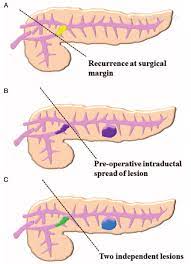How Pancreatic Tumors Disrupt Insulin Production?
- admin
- November 4, 2024
- 4:11 pm
- No Comments

Ever feel like your pancreas is the unsung hero of your body?
While other organs like the heart and brain get all the glory, your pancreas quietly plays a vital role in keeping your blood sugar levels stable.
But when tumors invade this gland, it is not just a case of a minor inconvenience—it can cause absolute chaos, especially when it comes to insulin production.
So, grab a cup of coffee (or green tea if you are feeling fancy), and let’s dive into the fascinating, albeit slightly alarming, world of pancreatic tumors and their effect on insulin production.
In This Article:
- Anatomy of the Pancreas: A Quick Overview
- The Role of Insulin and How It’s Produced
- Types of Pancreatic Tumors and Their Impact
- How Tumors Physically Disrupt Insulin Production
- The Hormonal Chaos: Overactive Pancreas and Hypoglycemia
- Real-Life Example: John’s Battle with Insulin-Secreting Tumors
- Scientific Research on Tumor-Induced Insulin Disruption
- FAQs on Pancreatic Tumor & Insulin Production
- Conclusion: Understanding the Tumor-Insulin Connection
Anatomy of the Pancreas: A Quick Overview
First, let’s get to know our pancreas better.
Located behind your stomach, the pancreas is a tadpole-shaped organ with two main jobs: it helps with digestion and regulates your blood sugar levels.
As per bestdietarysupplementfordiabetics, “The latter function is handled by the islets of Langerhans, a set of tiny cell clusters that include beta cells responsible for producing insulin”.
In other words, your pancreas is the sugar traffic controller of your body.
The Role of Insulin and How It is Produced
Insulin is the hormone that allows your cells to absorb glucose from your bloodstream, which they then use for energy.
Think of insulin as a friendly doorman who lets glucose into the cells, making sure your body has the energy it needs to function.
Any disruption in this process, like the one caused by pancreatic tumors, can lead to serious consequences.
Pancreatic tumors can either cause insulin overproduction, leading to dangerously low blood sugar, or reduce insulin secretion, resulting in high blood sugar.
Both scenarios are a nightmare for your body’s metabolism.
Types of Pancreatic Tumors and Their Impact
Pancreatic tumors come in various shapes, sizes, and temperaments.
Some are benign, like insulinomas, which are insulin-secreting tumors that can wreak havoc on your blood sugar levels.
Others are more sinister, like pancreatic adenocarcinomas, which may not directly secrete hormones but still disrupt normal pancreas function.
According to The Journal of Clinical Investigation, about 5% of pancreatic tumors are neuroendocrine tumors.
These can either overproduce hormones, like insulin, or block the function of cells responsible for insulin production.
How Tumors Physically Disrupt Insulin Production?
So, how do these tumors actually mess things up?
One way is by physically damaging or displacing the islet cells.
Imagine you are trying to work at your office desk, but someone keeps moving your chair, piling boxes on your desk, and occasionally turning off your computer.
That is what pancreatic tumors do to insulin-producing cells.
They create a hostile environment, making it difficult for the pancreas to function efficiently.
In more aggressive cases, tumors can cause scarring (fibrosis) of pancreatic tissue, further reducing insulin production.
The American Diabetes Association notes that this scarring disrupts both insulin secretion and the overall metabolic harmony of the body.
The Hormonal Chaos: Overactive Pancreas and Hypoglycemia
Interestingly, some pancreatic tumors, like insulinomas, can make your pancreas hyperactive.
When this happens, your pancreas starts churning out insulin like it is Black Friday and insulin is on sale.
This leads to overactive pancreas hypoglycemia, where your blood sugar drops to dangerously low levels.
Insulin-secreting tumor symptoms often include dizziness, confusion, and even loss of consciousness.
It is like your body is running on empty, despite being flooded with insulin.
Endocrine Reviews highlights that these episodes can be life-threatening if not managed properly.
John’s Battle with Insulin-Secreting Tumors
Let’s take a moment to meet John, a 52-year-old accountant who loved donuts but could not explain why he kept feeling dizzy and tired.
After several fainting spells at work, John was diagnosed with an insulin-secreting tumor in his pancreas.
His pancreas insulin production had gone into overdrive, causing his blood sugar to crash regularly.
Surgery was eventually required to remove the tumor, but the damage to his pancreas had already made his blood sugar regulation a lifelong challenge.
Scientific Research on Tumor-Induced Insulin Disruption
According to The Lancet Oncology, tumors that develop in the pancreas can significantly affect both the endocrine and exocrine functions of the gland.
The study also pointed out that the earlier the tumor is detected, the better the chances of preserving normal pancreatic function.
Another study in Diabetes Care showed that even small tumors could cause disproportionately large disruptions in insulin and other hormone productions.
The research highlights the importance of regular pancreas insulin production tests for early detection and management.

FAQs on Pancreatic Tumor & Insulin Production
Q-1: How can a tumor “shut down” insulin without physically removing β-cells?
A-1: Tumors release signaling packets (exosomes) and inflammatory molecules that alter how nearby islets read nutrients. The result is a functional mute button: β-cells see glucose but don’t mount a full insulin pulse. At the same time, tumor-driven stress hormones and liver signals make tissues less responsive to insulin, so the pancreas faces both a louder demand and a weaker microphone.
Q-2: Why do head-of-pancreas tumors cause a different glucose pattern than tail tumors?
A-2: Tumors in the head often disrupt pancreatic polypeptide (PP), a hormone that helps restrain the liver’s glucose output. With less PP, fasting glucose can run high even if meals are modest. Tail tumors more often injure the islet-dense distal pancreas, trimming β-cell mass and blunting meal-time insulin bursts—so post-prandial spikes dominate. Both locations can also weaken glucagon, raising the risk of late or overnight lows.
Q-3: Can blocked ducts from a tumor change digestion enough to derail insulin responses?
A-3: Yes. When ducts are obstructed, enzymes and bicarbonate don’t reach the intestine properly. Starches and fats arrive under-digested, and bile acids don’t signal the lower gut normally. That flattens incretin hormones that usually amplify meal-time insulin. Paradoxically, when digestion is later restored (after stent, surgery, or enzyme therapy), insulin needs can change because nutrients and incretins finally arrive on time.
Q-4: Why do some people develop diabetes before the cancer is found?
A-4: Long before a mass is large enough to be seen, tumor-secreted factors can push a bodywide, “diabetogenic” state: weaker insulin secretion, more liver glucose output, and subtle muscle insulin resistance. In people over ~50, sudden, otherwise unexplained diabetes—often with weight loss—can be an early metabolic footprint of a small pancreatic tumor rather than classic insulin-resistant Type 2.
Q-5: How do the tumor’s support systems (stroma, blood supply, nerves) sabotage β-cells?
A-5: Pancreatic cancers build a dense, fibrous neighborhood (desmoplasia) that squeezes small vessels, starving nearby islets of oxygen and nutrients. Local nerve remodeling and chronic inflammation add oxidative stress that nudges β-cells toward exhaustion or “dedifferentiation” (losing their identity and output). Even surviving β-cells then fire less synchronously, so insulin pulses arrive late and weak—exactly the pattern that drives erratic glucose in cancer-associated (Type 3c) diabetes.
Understanding the Tumor-Insulin Connection
Pancreatic tumors are not just unwelcome guests; they are party crashers that hijack your body’s schedule, then raid the fridge.
Some, like insulinomas, flood the bloodstream with insulin so aggressively that you feel shaky, sweaty, and confused after seemingly normal meals—or even during sleep.
Others, such as pancreatic ductal adenocarcinoma, do the opposite: they injure or starve nearby β-cells so your pancreas under-delivers insulin, leading to stubborn post-meal spikes and unexplained fatigue.
Mechanisms vary.
A tumor in the pancreatic head can reduce pancreatic polypeptide—a hormone that normally reins in the liver—so your fasting glucose runs high even if dinner was sensible.
A tail tumor often nicks the islet-rich region that powers your meal-time insulin burst, so the very same breakfast that used to be fine now sends glucose soaring.
If the tumor blocks ducts, digestive enzymes cannot reach the intestine; carbs and fats arrive under-digested, blunting incretin signals that usually amplify insulin.
Paradoxically, after a stent restores flow—or you start pancreatic enzyme replacement—your insulin needs may change again because nutrients finally arrive “on time.”
Real-world snapshots: you down a sandwich and feel fine, but two hours later your CGM alarms—late spike from impaired first-phase insulin.
Another day, you sip wine on an empty stomach and wake at 3 a.m. clammy—overnight low from impaired counter-regulation layered on erratic digestion.
After a Whipple surgery, you might notice smaller portions, enzyme capsules with the first bite, and gentler walks after meals to smooth curves.
There is no single fix, but clarity helps.
Map your patterns (logs or CGM notes), pair food with timing (protein first, carbs last), use enzymes if prescribed, and loop in your care team about any surgery, stents, or symptom shifts.
Understanding how the tumor scrambles insulin production is the first step to taking back the rhythm.
References: